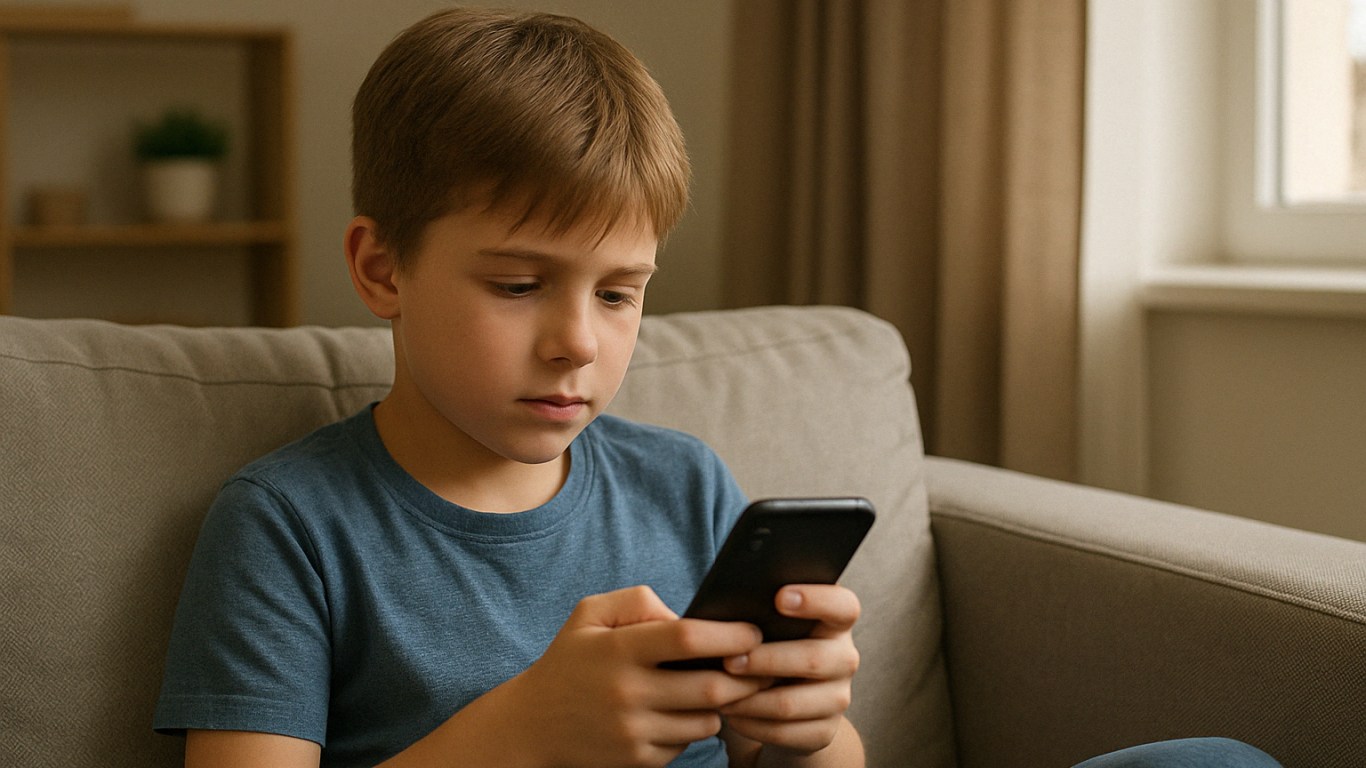10 Cheap Smartphones for Kids in 2025: Prices and Features
In today’s digital age, smartphones are not just entertainment tools. For many children, they serve as a bridge to learning, communication, and creativity. Choosing the right device can help your child stay connected in school, access educational apps, and explore digital skills in a fun and productive way.
To help parents make smart and budget-friendly decisions, we have curated a list of the 10 best cheap smartphones for kids in 2025. These models offer great value, strong performance, and essential safety features that are perfect for young users.
What to Consider When Buying a Cheap Smartphone for Kids

When shopping for cheap smartphones for kids, it is important to think beyond the price tag. Here are key things every parent should consider before making a choice:
Price
A good smartphone for kids does not need to be expensive. Many reliable devices under 180 dollars offer excellent features for school and everyday use.
Parental Controls
Smartphones with built-in parental control settings make it easier to monitor your child’s activity, manage screen time, and ensure safe browsing.
Battery
Look for phones with strong battery life that can support your child throughout a full day of studying, gaming, or video calling without frequent charging.
Durability
Children can be rough with gadgets. A solid build or phone that works well with a protective case will help prevent costly accidents.
Performance
At least 3 GB of RAM and 32 GB of storage is recommended for smooth learning app usage, media playback, and communication features.
10 Best Cheap Smartphones for Kids in 2025
1. Xiaomi Redmi Note 12

A favorite among cheap smartphones for kids, this model supports learning apps and video streaming with ease.
Price: Around 170 USD
Display: 6.67 inch AMOLED
Processor: Snapdragon 4 Gen 1
RAM and Storage: 4 GB RAM and 128 GB
Camera: 50 MP triple rear
Battery: 5000 mAh with 33W fast charging
2. Realme Narzo 50A

Reliable and long-lasting, this phone is perfect for children attending full-day online classes or playing educational games.
Price: Around 140 USD
Display: 6.5 inch HD Plus
Processor: MediaTek Helio G85
RAM and Storage: 4 GB RAM and 64 GB
Camera: 50 MP rear
Battery: 6000 mAh
3. Samsung Galaxy A14

A well-known brand delivering one of the most dependable cheap smartphones for kids with a simple interface.
Price: Around 180 USD
Display: 6.6 inch Full HD Plus
Processor: Exynos 850
RAM and Storage: 4 GB RAM and 64 GB
Camera: 50 MP triple rear
Battery: 5000 mAh
4. Infinix Hot 12

This large-screen phone supports video learning and basic mobile games for children with curiosity.
Price: Around 130 USD
Display: 6.82 inch HD Plus
Processor: MediaTek Helio G85
RAM and Storage: 4 GB RAM and 64 GB
Camera: 13 MP rear
Battery: 5000 mAh
5. Motorola Moto E40

A practical choice among cheap smartphones for kids with clean software and strong performance.
Price: Around 150 USD
Display: 6.5 inch HD Plus
Processor: Unisoc T700
RAM and Storage: 4 GB RAM and 64 GB
Camera: 48 MP triple rear
Battery: 5000 mAh
6. OPPO A54

Stylish, dependable, and ideal for preteens who need extra storage for schoolwork and hobbies.
Price: Around 155 USD
Display: 6.51 inch HD Plus
Processor: MediaTek Helio P35
RAM and Storage: 4 GB RAM and 128 GB
Camera: 13 MP triple rear
Battery: 5000 mAh
7. Tecno Spark 9

Simple and affordable, making it one of the easiest cheap smartphones for kids to learn with.
Price: Around 130 USD
Display: 6.6 inch HD Plus
Processor: MediaTek Helio G37
RAM and Storage: 4 GB RAM and 64 GB
Camera: 13 MP dual rear
Battery: 5000 mAh
8. Huawei Y5p

Compact and lightweight, this is great for younger kids who are just starting out with digital devices.
Price: Around 110 USD
Display: 5.45 inch LCD
Processor: MediaTek Helio P22
RAM and Storage: 2 GB RAM and 32 GB
Camera: 8 MP rear
Battery: 3020 mAh
9. Samsung Galaxy M12

Trusted by many parents, this phone balances power and price well for a first smartphone.
Price: Around 160 USD
Display: 6.5 inch HD Plus
Processor: Exynos 850
RAM and Storage: 4 GB RAM and 64 GB
Camera: 48 MP quad rear
Battery: 6000 mAh
10. Realme C55

With high storage and RAM, this phone is excellent for older children who like creative apps and multitasking.
Price: Around 170 USD
Display: 6.72 inch IPS LCD
Processor: MediaTek Helio G88
RAM and Storage: 6 GB RAM and 128 GB
Camera: 64 MP dual rear
Battery: 5000 mAh
Let Your Child Grow With Purpose
A smartphone should not just be a toy. With the right guidance, it can be a tool that helps children grow their knowledge, confidence, and independence. Whether it is joining virtual classes, discovering coding, or connecting with mentors online, cheap smartphones for kids can open doors when used wisely.

Ingin tahu detail program?
At Timedoor Academy, we believe that learning with technology should be meaningful. That is why we offer engaging online classes in coding, animation, and digital skills for children. If you want to help your child turn screen time into real learning, start with a free trial class. No pressure, just an open door to see what your child can create!